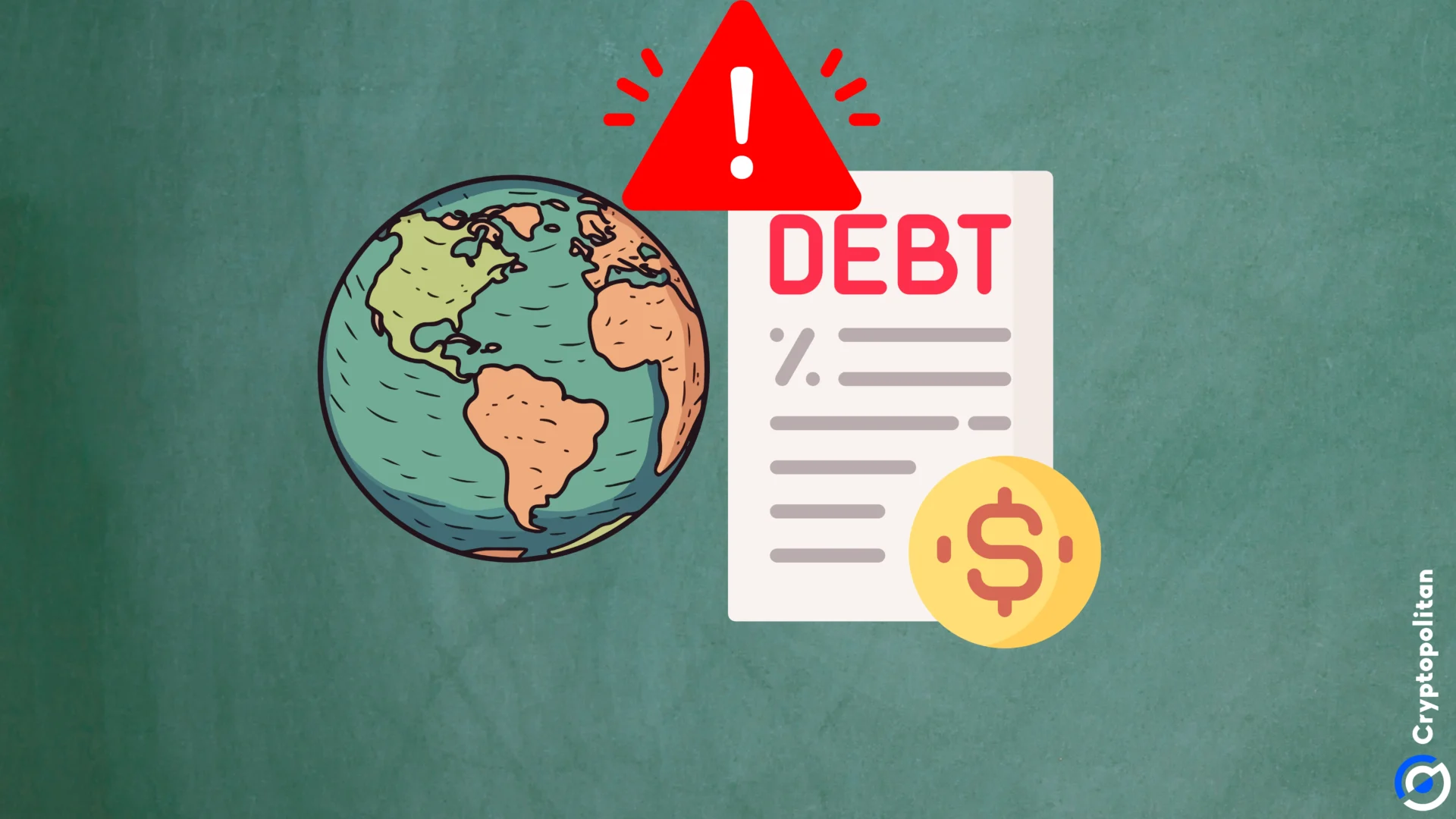Global finance leaders are bracing for a massive debt crisis as the International Monetary Fund (IMF) warns that public debt could hit $100 trillion by the end of this year.
With two of the biggest economies, the United States and China, driving this debt, the IMF is ringing alarm bells ahead of its annual meetings in Washington.
The global economic forecast isn’t pretty, with inflation only recently cooling off and the next financial shock potentially on the horizon. The IMF is urging leaders to act quickly before things spiral even further out of control.
IMF issues $100 trillion debt threat
Kristalina Georgieva, the IMF’s Managing Director, pointed out in her speech that the world is facing a brutal combination of low growth and high debt.
“Governments must work to reduce debt and rebuild buffers for the next shock — which will surely come, and maybe sooner than we expect,” she said.
The IMF’s Fiscal Monitor report, set to drop on Wednesday, will reveal just how bad things are. The big takeaway? Public debt is ballooning, and it’s not just an issue for China and the U.S.
Every single country on earth will be affected. We’ll see skyrocketing borrowing costs and increased risks for smaller economies that are already struggling to keep up.
The UK is a prime example. The IMF has already warned Chancellor of the Exchequer Rachel Reeves that if the country doesn’t stabilize its debt, it could face a nasty market backlash.
And the clock is ticking. Tuesday’s public finance data release will give everyone a final look at the numbers before the Chancellor’s budget announcement on October 30.
Meanwhile, all eyes are on France as Moody’s Ratings gets ready to issue its report on the country’s debt situation this Friday. France’s credit rating is currently a notch above its competitors, but if that changes, it could tumble markets.
Central banks under pressure
Central banks are also under pressure, with several key decisions expected in the coming week. In Canada, economists are predicting a rate cut after inflation cooled to 1.6% in September. They also expect the Bank of Canada to lower rates by 50 basis points.
Over in Russia, the opposite could happen. The Bank of Russia, which already hiked rates to 19% in September, might raise them again to deal with persistent inflationary pressures.
In America, mortgage rates are finally dropping, giving some relief to the housing market, which has been in a slump for years.
Data expected this week from the National Association of Realtors will show whether this drop in mortgage rates is actually translating into more home sales. Existing home sales have been struggling, but new home sales are on the rise, thanks to builders offering incentives.
September’s durable goods orders and capital goods shipments data will also help economists fine-tune their estimates for third-quarter U.S. economic growth.
The Federal Reserve’s Beige Book, a snapshot of the current state of the U.S. economy, will be released this week as well, and it could offer more insights into how things are playing out on the ground.
Fed officials Jeffrey Schmid, Mary Daly, and Lorie Logan are all scheduled to speak, which means we could see some fireworks from the central banks.
European scrutiny
Europe isn’t immune to the drama. More than a dozen European Central Bank (ECB) Governing Council members are set to make appearances in Washington, including ECB President Christine Lagarde, who will be interviewed on Bloomberg TV.
Inflation remains a huge issue for the eurozone, and consumer confidence is low. Germany’s Ifo Institute is also releasing its business confidence gauge this week, which will give us an idea of how Europe’s biggest economy is holding up.
On the UK front, Bank of England Governor Andrew Bailey will speak in New York, while Swiss National Bank President Martin Schlegel is expected to show up on Friday.
Belgium and Finland are also on the radar, with credit rating assessments due on Friday from S&P. Meanwhile, Hungary is likely to keep its borrowing costs steady in its central bank meeting on Tuesday.
Outside of Europe, South Africa is also in the spotlight. On Wednesday, the country is expected to release data showing a slowdown in inflation to 3.8% in September.
Mexico is another country to watch. GDP proxy data for the country is expected to confirm that the economy is losing momentum, with many economists revising their third-quarter growth forecasts downward.
Argentina, which is already in a recession, is expected to continue struggling well into 2025. In Paraguay, central bankers have kept borrowing costs steady at 6%, but inflation is still above the 4% target.
In Brazil and Mexico, inflation reports are expected to bring bad news, with predictions of higher headline numbers.
None of this is comforting for investors or policymakers, who are already dealing with an environment of rising debt and weak growth. The IMF’s message is clear. Governments need to take responsibility for their growing debt loads before it’s way too late.









